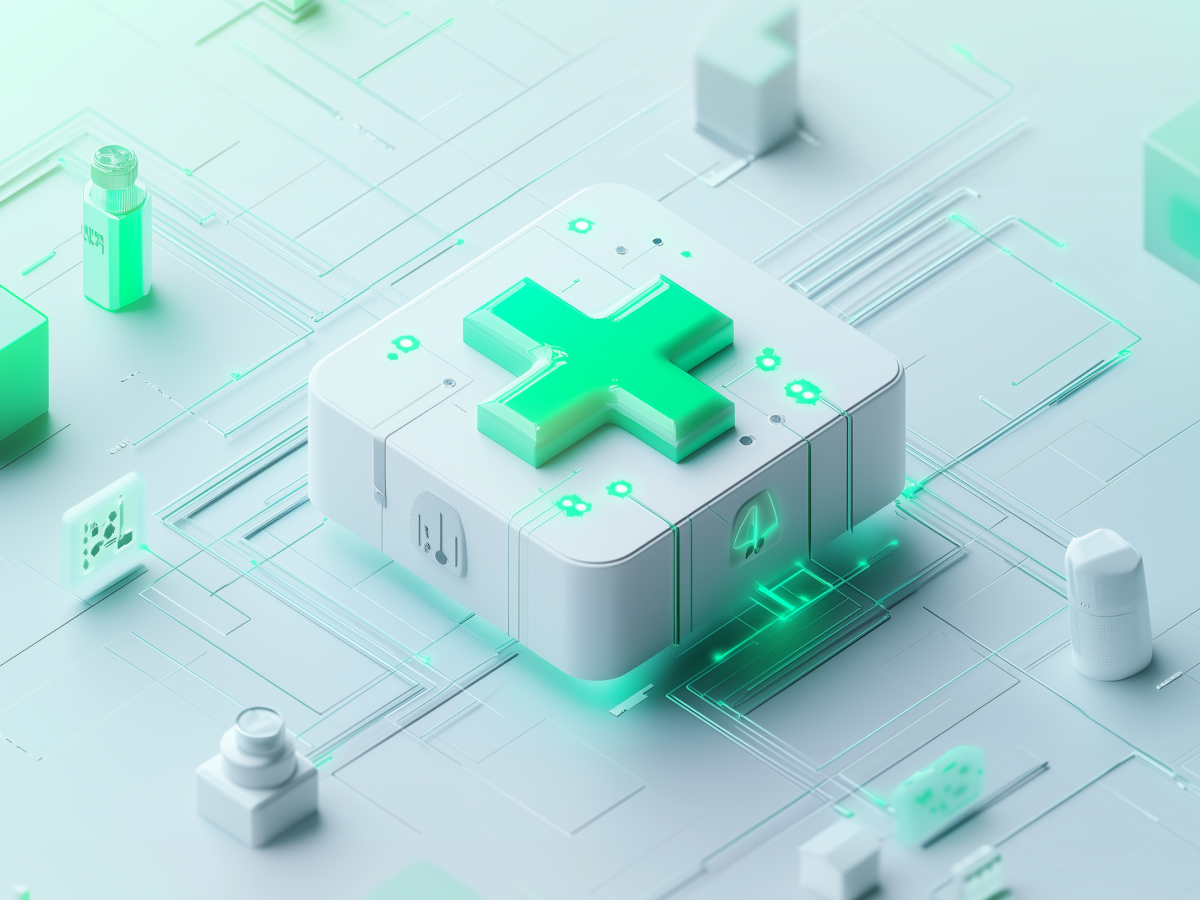Healthcare and life sciences (HCLS) industries have traditionally been cautious with adopting new technologies due to strict regulations like HIPAA and FDA guidelines. Regulations guarantee patient safety and data privacy, leading to slower adoption.
The fragmented nature of healthcare systems and unstructured medical records further complicates technology integration. A cautious approach stems from the need to protect sensitive health data and avoid errors in clinical settings.
Despite a slow start, HCLS companies are now rapidly adopting generative AI (GenAI) in key areas such as research and development (R&D) and clinical trials.
GenAI improves drug discovery by analyzing genomic data, helping scientists reduce research time. In clinical trials, it simplifies patient selection and data analysis, accelerating the trial process.
A shift towards GenAI in high-impact areas demonstrates its potential to reduce costs and improve outcomes.
GenAI’s influence on healthcare and life sciences
GenAI is proving to be a valuable tool for both physicians and researchers. For physicians, it automates the creation of concise summaries of patient cases, medical histories, and diagnostic reports, leading to faster decision-making.
In drug discovery, GenAI models interpret genomes as language, helping scientists to identify potential drug targets more efficiently. GenAI accelerates the research process, particularly in fields like oncology and genetic disorders.
The clinical trial process, traditionally resource-intensive and slow, benefits greatly from GenAI.
At Mass General Brigham, researchers found that tools like ChatGPT can accelerate patient screening, reducing the manual effort needed to identify qualified candidates. When parsing through unstructured data such as medical records, GenAI matches eligible patients more quickly, speeding up trial initiation and reducing costs.
Healthcare is ready for GenAI
HCLS companies are well-suited to adopt GenAI due to their existing strong data privacy frameworks. Governed by HIPAA and FDA regulations, these organizations already have secure data management systems in place, making the transition to AI-driven tools smoother.
Frameworks give patient confidentiality and compliance with stringent regulations, reducing concerns about data breaches or misuse.
To fully use GenAI, healthcare organizations require well-structured, consolidated data. HCLS companies, accustomed to managing electronic medical records (EMRs) and integrating diverse data sources, are in a strong position to benefit from GenAI.
Organized data can be used to extract actionable insights, improving everything from patient care to drug discovery.
The power of unstructured data with generative AI
Healthcare generates vast amounts of unstructured data, from medical records to diagnostic results. Extracting insights from this data has traditionally been labor-intensive. GenAI simplifies the process by analyzing these datasets and identifying meaningful patterns. This capability is particularly beneficial for health insurers optimizing claims or hospitals improving patient outcomes through predictive analytics.
In drug discovery, GenAI accelerates research When interpreting genomic data to identify viable drug targets. This allows scientists to focus on the most promising candidates, reducing research time and costs.
GenAI’s ability to process complex genomic data makes it invaluable in fields like oncology, where the scope of research can be overwhelming.
Blending data for better R&D
In R&D, combining internal data with third-party sources like PubMed can unlock new efficiencies. Querying external datasets is often expensive and time-consuming, but GenAI narrows the focus and quickly delivers relevant insights. This capability accelerates drug discovery When enabling researchers to make data-driven decisions faster.
GenAI models trained on human and primate genomes analyze genetic sequences as language, identifying new drug targets.
Traditionally, researchers would need to test thousands of sequences, but GenAI reduces this to a focused set of high-potential targets. This accelerates drug development and cuts down on research costs.
GenAI is improving drug discovery and clinical trials
GenAI holds promise for speeding up the discovery of cures When improving drug discovery and clinical trial efficiency. Its impact extends to medical imaging, where it enhances the interpretation and correction of images, often in real-time.
When generating cloud-based images, GenAI also helps train traditional models more effectively, pushing the boundaries of diagnostics and treatment planning.
GenAI is innovating research beyond medicine
In cancer research, GenAI models are retrained on comprehensive cancer genomes to help researchers discover more precise treatments. When leveraging internal data and clinical studies, these models provide insights into genetic mutations driving tumor growth.
GenAI’s applications extend beyond healthcare. In agriculture, it is used to develop more resilient seed strains When analyzing plant genetics. This helps improve crop yields and resistance to environmental factors, making GenAI a valuable tool for addressing food security and climate challenges.
GenAI’s adaptability across sectors showcases its broad potential.
GenAI is taming unstructured data to transform clinical trials
Clinical trials rely heavily on matching patient characteristics with trial criteria, a process that often involves laborious manual reviews of unstructured data. GenAI automates this When analyzing medical records and trial protocols, identifying eligible candidates more efficiently. This shortens the recruitment phase, enabling trials to start sooner and run more effectively.
How GenAI makes AI accessible to non-coders
Traditionally, leveraging AI in research required specialized coding skills. GenAI lowers this technical barrier When offering tools that allow scientists, bioinformaticians, and chemists to analyze large datasets without needing to write code.
Democratization of AI empowers researchers to focus on innovation, rather than technical complexities, accelerating progress in their respective fields.
Key takeaways and what CIOs can learn from healthcare’s use of GenAI
Successful implementations of GenAI in healthcare focus on high-return applications. These include automating error-prone manual processes and improving operational efficiency. CIOs should target GenAI use cases that offer the most cost savings or operational improvements, such as streamlining patient data analysis or accelerating drug discovery.
For healthcare organizations, aligning GenAI with long-term strategic goals is essential. Whether focused on improving patient care or advancing research, GenAI implementations should support the organization’s core mission.
CIOs must also prioritize data privacy and security, particularly in regulated industries like healthcare, to give compliance while driving innovation.
Healthcare’s stringent regulatory environment, with its focus on data security, makes it particularly well-suited for GenAI adoption. Existing privacy frameworks such as HIPAA give that sensitive patient data is managed securely, allowing HCLS companies to confidently implement AI solutions without compromising compliance.
A strong foundation helps healthcare organizations to innovate while maintaining trust and integrity in data management.





